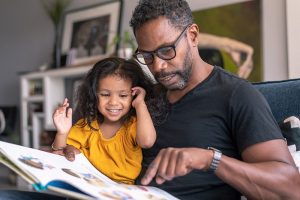How to help your child learn a second language
Children are developing the skills, knowledge and values to engage in a global community right now. Being able to communicate and understand multiple languages is more important than ever. In fact, across the globe speaking two languages (or more) is the norm, not the exception.
Languages improve your child's brain
 Research supports the value of children learning multiple languages. Being bilingual is good for your child’s brain. It improves their memory and encourages flexible thinking. In some instances, being bilingual also provides a connection to extended family, culture and history.
Research supports the value of children learning multiple languages. Being bilingual is good for your child’s brain. It improves their memory and encourages flexible thinking. In some instances, being bilingual also provides a connection to extended family, culture and history.Early childhood is the best time to learn a second language. Amazingly, babies are born with the ability to distinguish and produce all the sounds of the world’s languages.
Learning through play
 For a young child learning language is full of one-on-one interactions. There are repeated fun and engaging opportunities for language building through play, songs and books. These are high-quality and high-quantity experiences that provide a child with strong language skills. Adults and even older children do not have the same amount of time to devote to learning language.
For a young child learning language is full of one-on-one interactions. There are repeated fun and engaging opportunities for language building through play, songs and books. These are high-quality and high-quantity experiences that provide a child with strong language skills. Adults and even older children do not have the same amount of time to devote to learning language.Learning to speak two languages is like any other skill, it takes practice and time. However, children who experience two languages from birth can become native speakers of both languages. Provide your child with opportunities to hear and practice using both languages, especially in everyday situations.
Tips to help your child learn a second language
 Listen to music and sing songs in both languages.
Listen to music and sing songs in both languages.- Watch a movie or TV in both languages.
- Play games in both languages.
- Read in both languages (everyday). We have many bilingual books at the library. If we don't have bilingual books in the languages you want, we can help you check out some through Interlibrary Loan.
- Mango Language Learning is a great resource for kids that are reading. It also includes movies in other languages.
- Spend one-on-one time talking and playing in both languages. Mango is free with your library card!
- Find a caregiver who speaks both languages.
- Introduce a puppet or stuffed animal who only speaks one language.
- Schedule play dates with families or relatives who speak both languages.
- Find schools or camps with a bilingual focus.
- Buy gifts that promote both languages.















